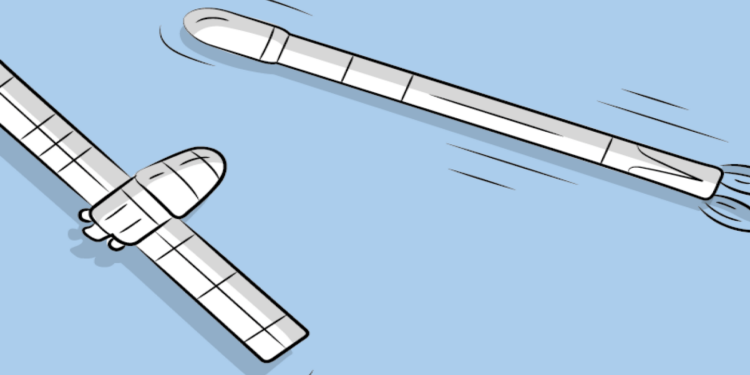The first Ariane-6 rocket will take off from French Guiana on Tuesday, July 9. Launch time will be at 3 pm in Kourou and 8 pm in Paris, a moment that has been anticipated for 10 years after Elon Musk disrupted the rules of the space sector by breaking launch prices with Space X and its Falcon-9 rocket. Europeans realized that had to react if they didn’t want to be pushed out of the sector altogether.
But the response was not as rapid as they had hoped. This was due to a lack of organization and hesitation over technological choices, against a backdrop of tension between the French and the Germans. “Let’s face it, the European space industry is at risk today,” warned Philippe Baptiste, president of the Centre national d’études spatiales (CNES National Space Study Center), at the Paris Air Forum on June 13. “We need to need to have strong answers and questions. This applies to both agencies and manufacturers – we need to be able to work differently, to get new players to emerge to move faster, because we’ve sometimes been too slow and missed out on technological developments.”
The situation is all the more critical now that the entire industry has been shaken by Musk’s impact, from launchers to satellite operators to manufacturers. “When SpaceX was undermining Ariane, France seemed to be the hardest hit. Today, as this concerns the entire value chain, it’s the whole of Europe that’s being targeted,” said Stéphane Israël, executive president of Arianespace. “No one can accept this overdomination and I’m convinced that the players will get organized to find alternatives.”
‘Impressed and distressed’
Musk has never missed an opportunity to flaunt his authority. In mid-March, just before Satellite 2024, an annual gathering of the space world in Washington, DC, the billionaire invited around 20 of his customers to his site in Boca Chica, Texas, where his giant Starship rockets are assembled and launched. On that particular day, five of them were lined up in the assembly hall, their 120-meter height reinforcing impressions of grandeur. On the return flight to the US capital, Musk invited his guests, most of whom were satellite operators, to test the internet connection provided by his Starlink constellation. “We are impressed and distressed” was the general feeling upon leaving the plane – impressed by the technical prowess of the future launcher, but distressed by the lead taken in telecoms.
The data confirms this domination. According to Look Up Space, a French start-up specializing in space surveillance, the milestone of 10,000 active satellites in orbit was passed in June – 10,019, to be precise, two-thirds of which (6,646) belong to Starlink. And what about rocket launches? Of the 72 American launches since the start of the year, SpaceX has carried out 86% with its Falcon-9 rocket, most of them for its Starlink constellation. And the Europeans, zero…
You have 74.41% of this article left to read. The rest is for subscribers only.
Source link : https://www.lemonde.fr/en/economy/article/2024/07/09/europe-is-looking-for-its-place-in-space_6679186_19.html
Author :
Publish date : 2024-07-09 15:52:55
Copyright for syndicated content belongs to the linked Source.


